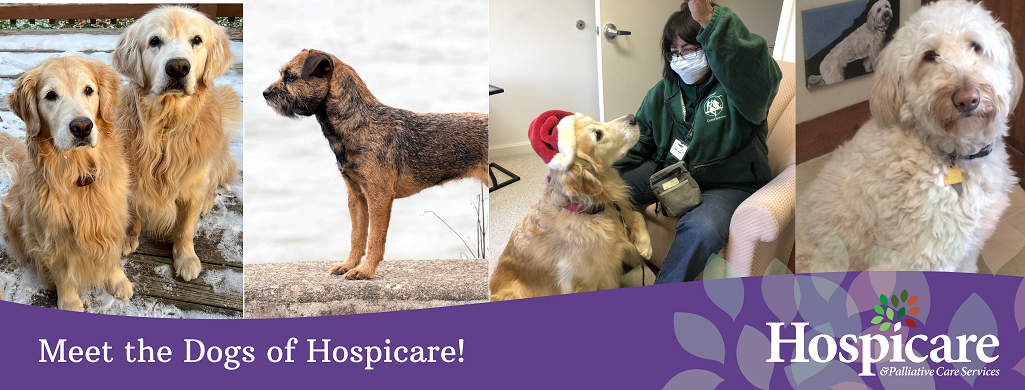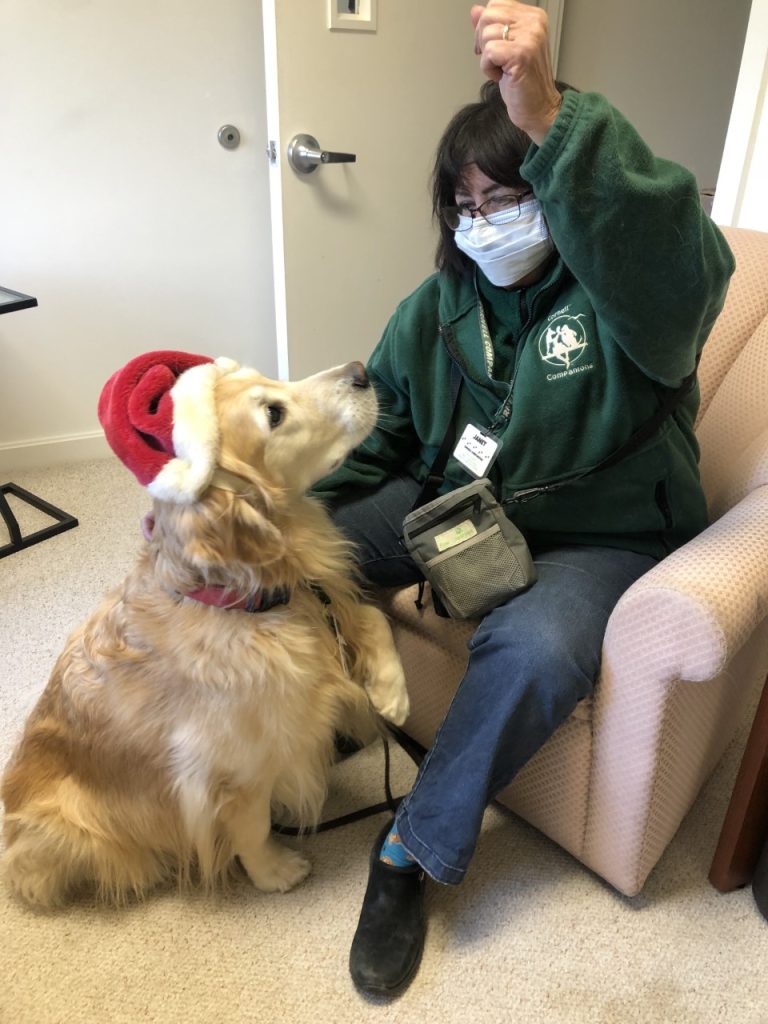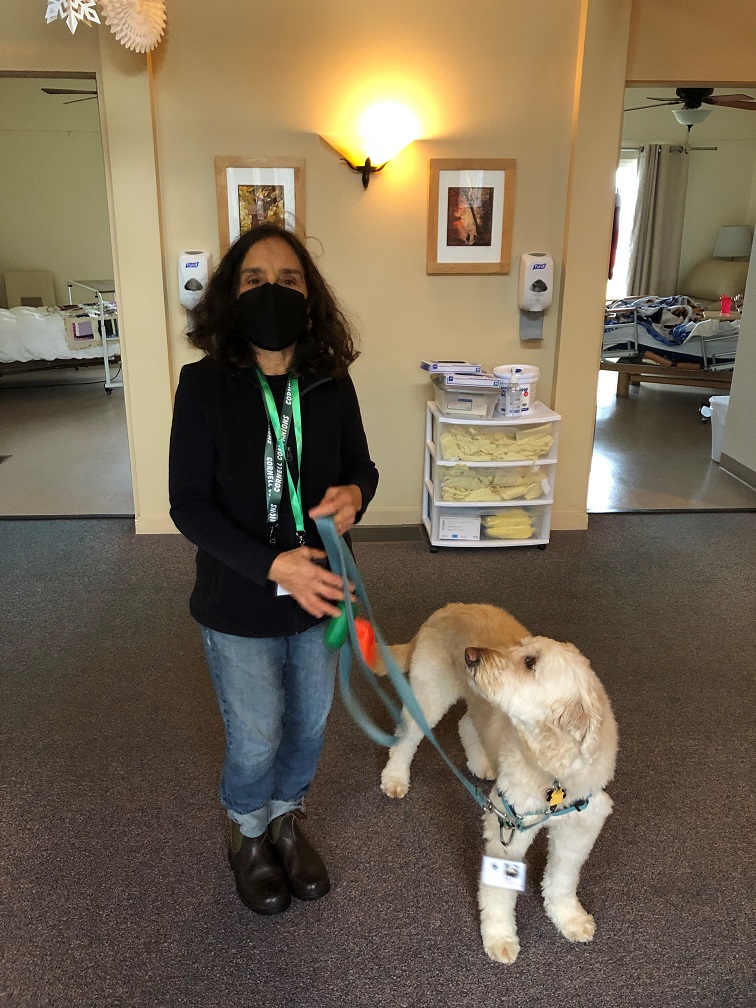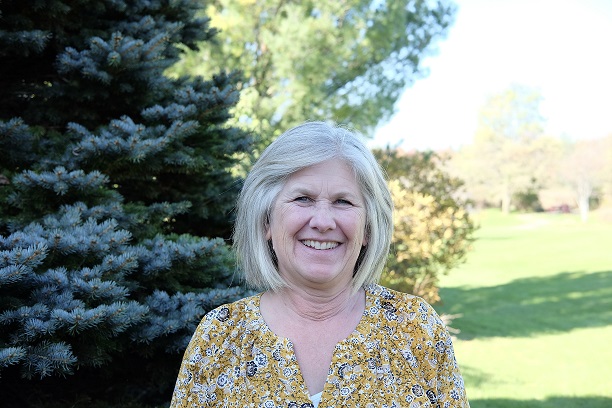By Emily Hopkins

“Animals aren’t judgmental, they don’t care what you look like, what you sound like, who you are. They reduce anxiety and heart rate, and they ease depression,” explains Hospicare volunteer Janet Gray, who directs Cornell University Veterinary College’s Cornell Companion Program. The program, which marks its 25thyear in 2023, makes regular visits to 14 care facilities and group residences in the Ithaca area, including Hospicare. Janet visits Hospicare with her Golden Retriever Eve.

“During the pandemic,” Janet says, “Hospicare was one of the only places besides Longview, to allow our visits. “The dogs even went on Zoom meetings with residents of Longview.
Each of the 14 facilities regularly visited by Cornell Companion animals and handlers has a team lead. Hospicare’s team lead is Marg Pough, owner of four adorable Border Terriers whom she brings to Hospicare: DJ, Devlin, Pipit, and Avery. Janet marvels at how in tune with humans many companion animals can be. “Many of them seem to know which people want a snuggle, which just want a quick pat.”

Anne Robbins, a retired school nurse and Montessori school administrator, regularly visits Hospicare with her mild-mannered Goldendoodle, Ruby. Hospicare can expect at least one visit a week from a companion animal and his or her human.
Cornell Companion’s program currently boasts 40 volunteer humans and 40+companion animals, including an owl named Luna and a llama named Breakfast. Each animal must pass a rigorous test of their ability to stay calm, not react to canes and wheelchairs and walkers, and to let people—including children and the elderly—pet them awkwardly or heavily.
Before she had Eve, Janet used to bring Ace, also a Golden Retriever (she’s owned Golden Retrievers for the past 40 years).
“There was a wonderful lady who lit up every time Ace and I visited,” Janet remembers.
“She had a box of dog treats on her nightstand. Ace would put his paws on her bed so she could pet him. She delighted in talking about her dogs from childhood and how she missed them while she stoked Ace’s head and ears. Ace closed his eyes while she talked and petted him. At the end of our visit, Ace gladly received a dog treat from her. We visited her for many months at Hospicare until one day when we arrived, we found her room empty. We later found out that she had improved and was moved to another facility.”

“Cornell Companion dogs have been visiting our residence for many years now, where so many patients as well as staff have benefited from the comfort they bring ” says Wendy Yettru, Hospicare’s Manager of Volunteer Servies. “One of my favorite memories was of one our patients who was blind and bedbound and the dog that was visiting was placed in the bed gently next to him. This patient was non-verbal, but the smile that came across his face as he embraced the dog was incredible!”

